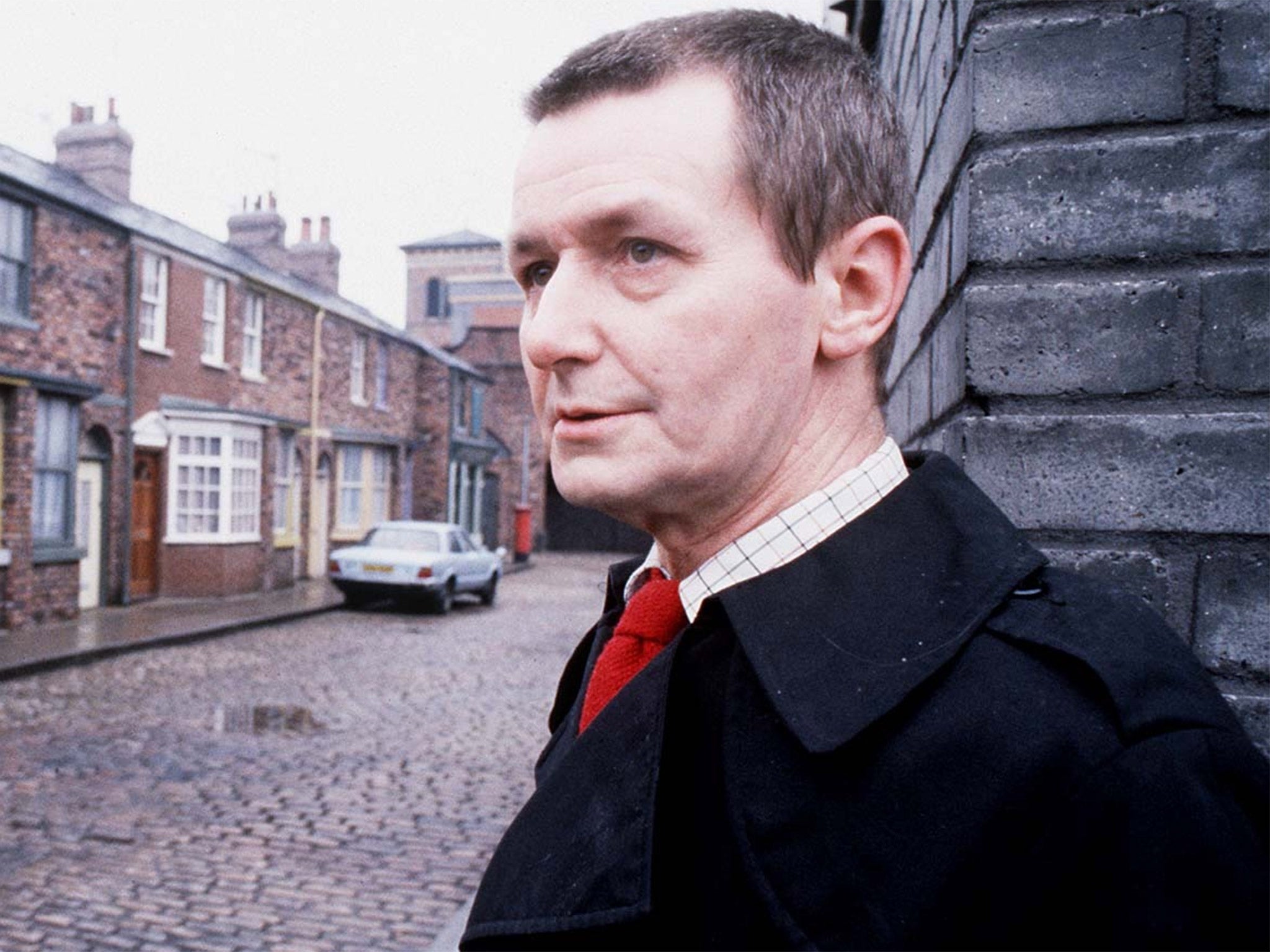Tony Warren: The 'Father of Coronation Street' was an authentic voice who placed working lives on screen
'Manchester has lost its dearest son and so many of us a beloved friend'

It could have been a BBC drama called “Our Street”. But Tony Warren’s determination to introduce the authentic voice of working-class life to the nation’s living rooms produced Coronation Street, the world’s longest-running television soap.
Screenwriter Warren, who died aged 79 following a short illness, pitched the idea of a kitchen sink drama to Granada Television after an executive at the Manchester-based broadcaster encouraged the former child actor to write a story about the world “out there.”
Warren dusted down a script originally offered to the BBC in 1957. Renamed Florizel Street, it would be set on a terraced street of back-to-back houses in Salford and feature characters inspired by the dominating, matriarchal woman of Warren’s Lancashire upbringing.
Warren’s script, with its unvarnished language and frequently unsympathetic characters, shocked Granada bosses. However the writer, just 24 when he first sketched his vision for the fictional town of Weatherfield, persuaded the company to go ahead with the drama.
Launched in December, 1960 and now called Coronation Street, the show became an instant hit with viewers, fascinated by larger-than-life characters like Ena Sharples and Elsie Tanner. Half the nation sat down to watch “Corrie” at its peak. Warren wrote episodes up to the 70s and remained a consultant on the series until his death.
Warren, who was openly gay during the show’s early years, at a time when homosexuality was illegal, saw his battles over the birth of Coronation Street turned into a 2010 BBC drama.
Carol Ann Duffy, Poet Laureate, who became a close friend of Warren, led the tributes. She said: “Manchester has lost its dearest son and so many of us a beloved friend. And the millions who have loved Coronation Street for over half a century have lost their Dickens.”
Bill Roache, who first appeared as Ken Barlow in the December 9, 1960 opening episode, said: “I loved Tony's energy. He was the father of Coronation Street and he gave us all so much. He will be so desperately missed because of who he was and what he did. We owe him so much.”
Julie Goodyear, who played bar lady Bet Lynch, recalled how Warren had asked her to accompany him when he was awarded his MBE at Buckingham Palace. She said: “I felt so very proud of him and all that he had achieved in creating Coronation Street - and of course the work this gave to so many others on both sides of the camera, and also in so many other countries around the world.”
“The immense pleasure that Coronation Street has given to all its viewers since Tony created it in 1960 really is amazing and it still does. It lives on and on.”
Join our commenting forum
Join thought-provoking conversations, follow other Independent readers and see their replies
Comments
Bookmark popover
Removed from bookmarks